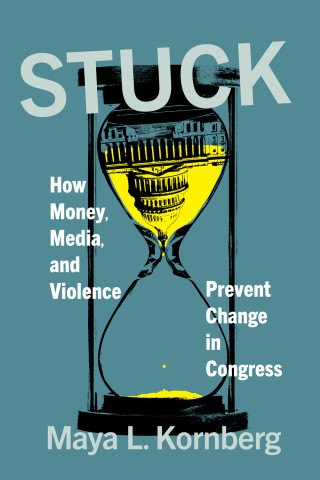
Reviews
Thinking beyond Boundaries encompasses a highly stimulating set of readings on contemporary U.S. foreign policy in a global environment where state boundaries are increasingly irrelevant. The material is well organized, interesting, and accessible. Upper-level undergraduate students and professors will enjoy discussing and debating the critical issues that emerge from these thought-provoking selections. This book is the most up-to-date publication of its kind.
Book Details
List of Contributors
Foreword
Acknowledgments
Introduction
Part I: Tracing Domestic Issues in U.S. Foreign Policy
Chapter 1. Politics along the Water's Edge
Chapter 2. Challenges to Achieving Whole- of-
List of Contributors
Foreword
Acknowledgments
Introduction
Part I: Tracing Domestic Issues in U.S. Foreign Policy
Chapter 1. Politics along the Water's Edge
Chapter 2. Challenges to Achieving Whole- of- Government Solutions
Chapter 3. E Pluribus Unum? Education and Foreign Policy
Chapter 4. Disorder at the Border? Immigration and Homeland Security
Chapter 5. American Society and Its Military
Chapter 6. Thinking Beyond Terrorism and Insurgency
Part II: Distinguishing Regional Dynamics in U.S. Foreign Policy
Chapter 7. Challenges and Opportunities in Sino- American Relations
Chapter 8. U.S. Policy Challenges in the Contemporary Middle East
Chapter 9. Promoting Security and Prosperity after Af ghan i stan
Chapter 10. Whither Eu rope? Economic Crisis and the Future of NATO
Chapter 11. Aid, Development, and Human Security
Chapter 12. Drugs, Crime, and State Fracture
Part III: Turning Global Challenges Into Foreign-Policy Opportunities
Chapter 13. Governing the Electronic Commons
Chapter 14. Foreign- Policy Challenges in 3D: Diplomacy, Democracy, and Development
Chapter 15. Securing Peace and Stability
Chapter 16. Trade, Globalization, and the International Economy
Chapter 17. Resources and Energy
Chapter 18. Thinking beyond Oil
Conclusion
Epilogue: The Student Conference on United States Affairs
Index





